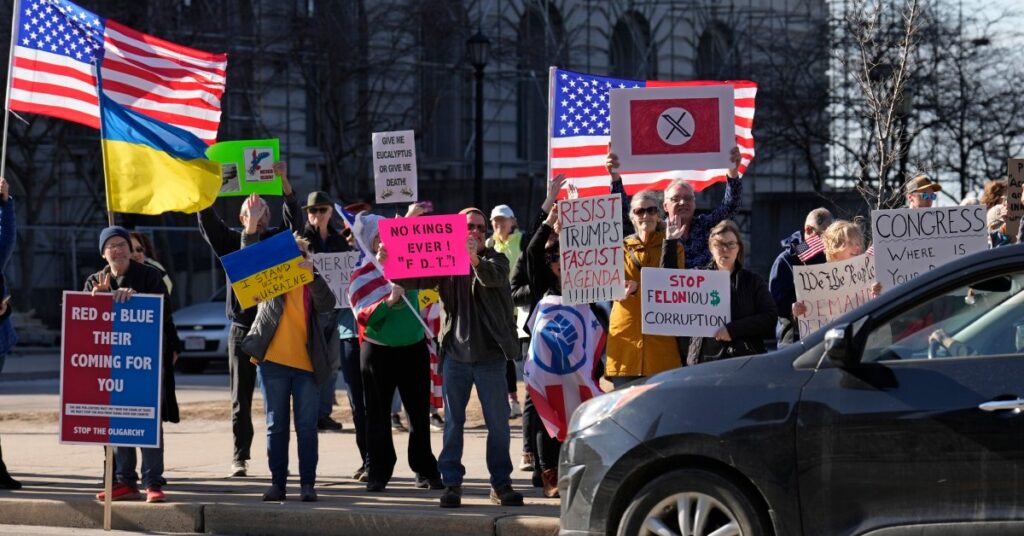Protest groups nationwide gathered in opposition to President Trump’s policies as he prepared to address Congress. Organized by the 50501 Movement, these protests aimed to challenge Trump’s populist influence on the Republican Party. Demonstrators faced the challenge of focusing their resistance amidst a myriad of contentious issues, from tariffs to climate denial.
In Atlanta, protesters rallied against various Trump initiatives, with calls branding him as a fascist and Putin’s puppet. The events extended across all 50 states, showcasing a diverse range of concerns, from transgender rights to education cuts. In Austin, protesters showed solidarity with Ukraine, emphasizing the impact of Trump’s policies on global affairs.
For many participants, these protests marked a new level of engagement in response to recent events, such as Trump’s interactions with Ukraine and his administration’s policies. Individuals like Grayson Taylor and Phyllis Bedford expressed their concerns over the perceived influence of billionaires in government and the detrimental effects of Trump’s actions on various sectors.
Amidst calls for Democrats to adopt a more assertive stance, protesters emphasized the need to highlight the tangible consequences of Trump’s decisions, such as those impacting education and public health. The ongoing resistance reflects a growing sense of urgency and a desire for collective action among concerned citizens.
As the protests unfold, participants aim to raise awareness and inspire dialogue on the broader implications of Trump’s presidency, urging individuals to recognize the interconnectedness of political decisions and their daily lives. Ultimately, the responsibility for instigating change is seen as lying with the American people.

